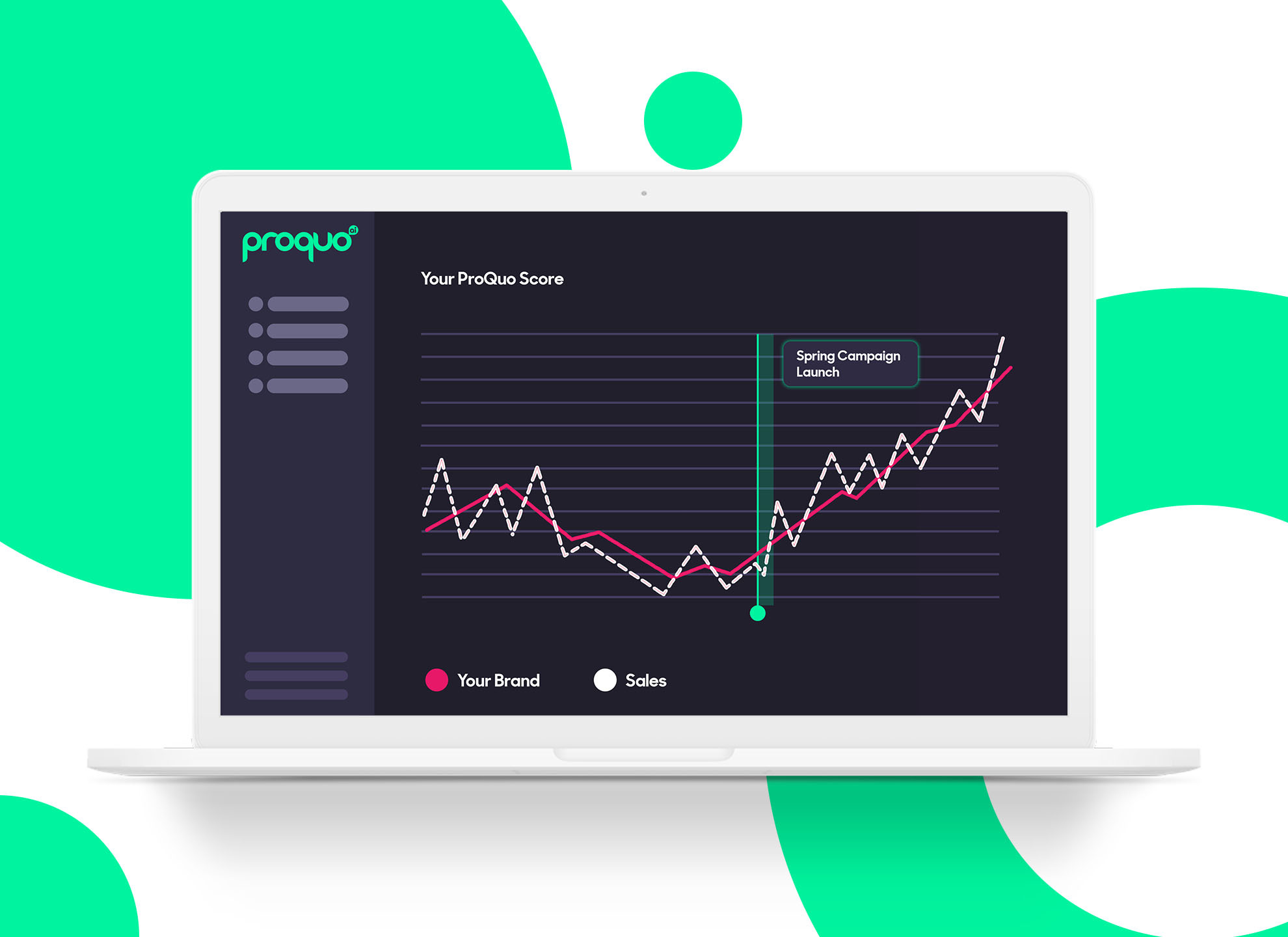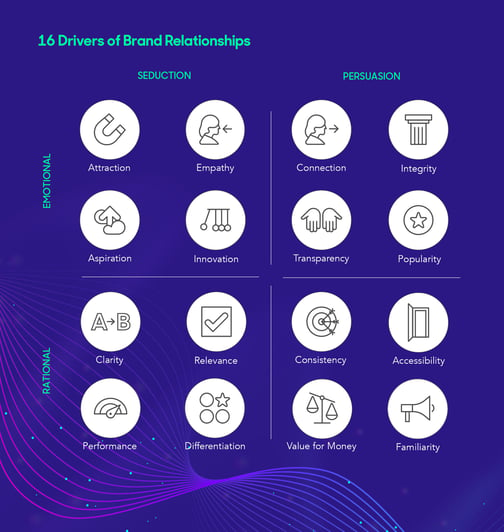Posted on April 9, 2021
Updated on March 13, 2023
4 min read time

If you were trying to get to an unknown location, you would use GPS to guide you.
The same applies to your marketing, as without a tried and tested method to determine effectiveness, you can find yourself blindly going through the motions, without knowing if your actions are helping or hindering your brand.
As a lot of marketing is based on the future, ‘If you do X and Y, you’ll see a positive return in a 6 months time’, it can be difficult to get internal and external stakeholders on board with your ideas.
Marketing proof helps brands to:
When making your case to your seniors, focus on revenue, customers and profit, as well as how your actions will further their goals. Marketing needs to be seen as an investment, rather than a cost.
Revert back to your core business aims. What is the most important thing to your company? Is their main goal to steal market share, disrupt the category or drive penetration for the business? Whatever the goal, marketers need to have a firm hold of it to ensure their actions are aligned with the company's mission. Without a clear idea of what your company is trying to achieve, you will struggle to prove value in your marketing actions.
Here are some metrics and methods brands are currently using to prove effectiveness:
But each of these methods has its limitations.
ROI cannot accurately account for the effectiveness of marketing spend, as it’s too focused on the short-term and on easy wins. To achieve a high ROI, you need to spend less, and for a low ROI you spend more. That’s why ROI is so often thought of as a measure of a company’s efficiency rather than effectiveness, as it doesn’t look at gross profit but instead, at the short-term financial losses.
Typically with marketing actions it takes time to see results. That’s why ROI won’t be beneficial for proving your marketing effectiveness, as it will simply highlight to the company where they can expect financial losses, without taking into account the huge amount they stand to gain, such as brand awareness, increased user base and sales growth.
ROI also doesn’t account for context. It fails to consider the noise of the market, which could skew results. Keeping an eye on your competition is crucial as it could have an impact on your marketing actions. Maybe they released a new product or ad at the same time as your launch, which could be eating into your sales intelligence.
Post-campaign reports contain useful information to improve your campaign output, but the problem is they come too late. By the time you receive a post-campaign report, it’s usually months after a project has ended, and because of this it’s difficult to create actionable, impactful decisions based on the intelligence.
Typically, a brand will have already moved onto their next venture by the time they receive these reports, making the recommendations it provides, useless. That’s why real-time intelligence is so important, as it gives brands the power to act reactively, in the moment, to improve their campaign performance, live.
Social Media metrics can be effective for deducing marketing effectiveness but it all depends on the channel you are using and the goal you are trying to achieve. For example, if you were looking to boost your awareness, you can gauge this through analysis of social metrics, like engagement or reach. But, if you wanted to see the impact that marketing has on your brand and sales, social media will not be able to give conclusive input on this area.
It’s also incredibly prone to bias, only displaying information users choose to publicly share about themselves. It's important to remember the way a user presents themselves online is often very different to who they normally are, which skews the accuracy of the intelligence you are receiving. Another problem with social media is that only a select group of people use these platforms, making it difficult to target your entire audience at one time, as some of your group may not have accounts.
This means you will need to carry out additional marketing on other platforms to ensure you are reaching your whole target audience, which is another cost for your brand.
One of the biggest problems with intelligence today is that the majority of these methods are backward looking. Brand Managers are forced to constantly look back to see where they went wrong, and because of this they aren’t living in the moment and are missing out on current opportunities.
Marketing effectiveness comes back to the power of a brand. The stronger relationship a brand has with its consumers, the more impactful its marketing actions will be. Brands that cement themselves into people’s lives, making people feel connected and understood, are much more likely to boost their revenue and hit their objectives.
The traditional methods for deducing marketing effectiveness aren’t conclusive, as they’re outdated and incapable of understanding how people feel about a brand. They can surface the superficial feelings a user reveals about a brand online, but don’t have the capacity to dig deeper into these feelings, to gain a more complex understanding of a brand’s relationship with its consumers.

This is because feelings form the basis of relationships, and relationships run the show in Brand Management. All you have to do is look into our ProQuo 16 Drivers to see how fundamental relationships are for brand growth. Every day, we gather feelings and thoughts from real people to understand how they feel about a brand, its competition, and its category.
Through the 16 Drivers, we determine the strength of these feelings to identify areas a brand is excelling in, and areas which need more work. Grow these Drivers, and your brand will grow.
ProQuo’s Brand Manager platform liberates brands, making it easier than ever to prove marketing effectiveness.
Normally, a brand would put their idea into market and only be able to prove success months down the line. At this point, it’s too late to do anything with this knowledge. But ProQuo is powered by real-time analysis, meaning you can launch an idea into market and know within minutes whether it’s working.
You can monitor campaigns in real-time, optimize them as you go, and prove the direct impact on your brand. Our platform works tirelessly, around the clock, asking people how they feel about your brand, category and competition, using our tried and tested 16 Drivers. With this intelligence, a brand can understand on a deeper level how it’s performing, what’s gone well and what needs to be improved.
Before ProQuo, you were forced to rely on outdated metrics when proving marketing effectiveness. Now, you have the option of a real-time platform that enables you to be reactive, to optimize campaigns and creatives live, and to accurately correlate your brand growth with your actions.
To discover why ProQuo AI is the future of brand tracking, click here.
Our intelligent platform will take your brand further, faster.
Don’t believe us?
© 2020-2023 ProQuo AI International
All rights reservedWebsite by Blend